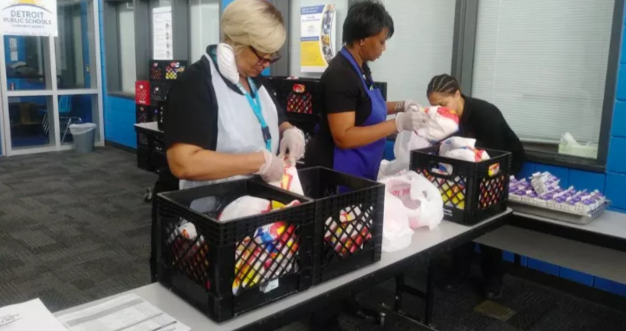
‘America’s children are hungry’ – and things are getting worse
Schools across the U.S are increasingly concerned of the effects on children’s education from them not having enough to eat.
‘Kids are hungry’ – that’s the message that is coming out loud and clear, just as the pandemic-enforced programmes to help young people are ending.
Though US Congress temporarily made school meals free to all children, that ended last autumn, yet there remain many vulnerable youngsters whose needs are not being met, and whose families continue to feel the effects of rising food prices.
Cafetarias in schools will not normally turn away a child who is hungry, whatever their circumstances, yet it means that debts for unpaid school meals are still rising, reports the Associated Press.
While this illustrates the level of need across the nation, it is also raising some difficult questions about how U.S schools will be able to keep feeding everyone but without federal money to actually do it.
Megan Curran, policy director for Columbia University’s Center on Poverty and Social Policy, said: “Programmes that provide direct food assistance are hugely critical and we are going to see the effects of not having them over the next couple of months.
‘When you can’t eat, you can’t focus’
According to the U.S. Department of Agriculture, more than 34 million people, including nine million children, are what is termed ‘food insecure’ in the U.S. This basically means they do not have regular access to enough food for every person in their family to be healthy. The knock-on effect on children is clear enough – when you can’t eat, you simply can’t continue to focus.
Feeding America is the largest charity working to end hunger in the United States, and a core part of its campaigning work is focused on the needs of children. “Kids who don’t get enough to eat — especially during their first three years – begin life at a serious disadvantage,” it says.
“Children facing hunger are more likely to be hospitalized and they face higher risks of health conditions like anaemia and asthma. And as they grow up, kids who missed meals are more likely to have problems in school and other social situations.
The potential effects on their schooling, adds the charity, include having to repeat a year, experiencing development problems, such as motor and language skills, and having more social and behavioural problems.
Click here for more on Feeding America’s work to help children.




